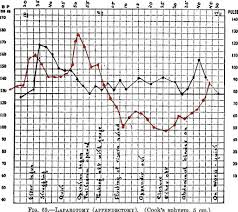Professional development comes from a lot of places. One place is from an individual you trust who can tell it to you straight. The trust and respect components in a mutually strong relationship can do wonders for your personal and professional growth. The process requires some strength on your part: You need to take the time with your mentor seriously enough to take the actions suggested by that mentor. Additionally, you must now invest more time in making a difference in your own career. Some people see this invested time as not important enough to make the commitment. Mentor relationships are not intended to just go through the motions. Although not all mentor relationships work out, I’ve rarely seen a situation in which something wasn’t learned, even if it was a small lesson.
I’ve had multiple mentors throughout my career. The definition and intentions of a mentor are far and wide. How two people find each other is also an inconsistent variable. A mentor can be part of a formal work program that matches two people up based on skill, tenure, and ability. A mentor can be someone you look up to, admire, and respect. A mentor can also be someone you seek out for knowledge you currently do not possess, but want to gain. In all cases, a mentor relationship is special because you are being given a third party’s perspective—one that is often completely different from your own thinking.
I started what I like to call a rotating mentor program for myself in 2008, which is continues to be an active part of my ongoing development today. This self-directed program was a proactive approach to building my network and relationships. I often base my selection criteria on a need I have at the time, or on a particular business expectation. I have found the advantage of variety has been something I seek out in order to broaden my own business acumen.
Mentor relationships can be formal, meaning designated meeting times and dates, or informal, meaning you connect through an already-established relationship based on a specific need. You might be surprised at the number of times you need a sounding board or simply objective advice from someone who does not have any vested interest in the game. The objectivity of a mentor gives you stability and sensibility to think straight, while keeping emotions in check.
Informal mentors are always good to have in your arsenal of tools. They are people you have worked with over time, in whose advice and suggestions you have a significant amount of confidence. Informal mentors are people to whom you can simply pick up the phone and say, “Please help me.” The great thing about informal mentors is that typically the person is someone with whom you can release pent-up frustration or gather ideas immediately. I have built up relationships with many people throughout my organization. The people I go to most often know my capabilities and many times know just what to say, at just the right time. I have had many problems in the past related to my own stubbornness, thinking I could do everything on my own. The use of mentors is a continuous reminder that two heads are often better than one.
Mentors have become a key to my ongoing success. My number of connections continues to grow. It is not the number that it is as important as the variety of go-to people. As time goes on in my professional life, people have moved on from a direct working relationship to other areas of the company, while others have left the company. People no longer with your company are a great asset in a mentoring capacity. Whether you strike up a formal or informal relationship is not relevant. The objectivity of people you are seeking advice from means they most likely do not have the same emotional connection to the situation that you do, but still have enough familiarity with the business to provide meaningful guidance to assist you in whatever way you may need.
As someone who is involved in a mentor relationship, you need to put into it what you want to get out of it. I have known many mentor relationships that are simply two people catching up at a designated time and date. The instances when I have learned the most from mentors have been with the ones who have pressed me to stretch myself by giving me assignments and tasks for the next meeting. They often saw my ability and capacity well beyond my own expectations for myself. I was often being taught when I didn’t even realize it.
These successful mentors also forced me to come up with the questions that drove the relationship. If you are in a mentor relationship, ask yourself the questions, “Why?” and, “What do you want to get out of it?” The answers will always vary based on the individual; however, there is always an answer. If you are unsure, use the questions to start the flow of the conversation with the mentor. The added value to the future meetings will begin to take hold. Someone has become your mentor for a reason. It is fair to ask tough questions of him or her and take advantage of the time together to gain from the knowledge, inspiration, and experience he or she can share. The challenge of solving difficult questions together will only build a deeper bond.
Finally, be patient as mentor relationships evolve. You may not always find the perfect match. The differences in opinions, styles, and knowledge that may be causing the strain in the relationship may also be the gap in learning you are seeking. You should take advantage of the situation, whether it is learning to deal with a different style or personality, or dealing with someone who has different expectations of the relationship. This should get you energized to learn to adapt, be patient, and make the most out of the relationship before you give up. Obviously, there is no prescription for the best time and definition of success between a mentor and student. Success may not be known until years from now, when you say, “I remember when my mentor (insert name here) told me that story about…”
I have also been in mentor relationships in which my mentor didn’t do a lot. He or she multitasked during our time together and was not interested, or seemed preoccupied. You may say to yourself, “I would never be like that as a mentor if I was in a similar situation.” You do not always have to have bells and whistles going off telling you this is the time to learn. If you remain active and engaged enough, and pay attention to what is going on around you, you will learn from these observations, so that when you are the mentor you will be fully invested. You may need to sever a mentor relationship that is not working, but you are still walking away stronger than you were before.
Thomas B. Dowd III’s books available in softcover, eBook, and audiobook (From Fear to Success only):
- Now What? The Ultimate Graduation Gift for Professional Success
- Time Management Manifesto: Expert Strategies to Create an Effective Work/Life Balance
- Displacement Day: When My Job was Looking for a Job…A Reference Guide to Finding Work
- The Transformation of a Doubting Thomas: Growing from a Cynic to a Professional in the Corporate World
- From Fear to Success: A Practical Public-speaking Guide received the Gold Medal at the 2013 Axiom Business Book Awards in Business Reference
- The Unofficial Guide to Fatherhood
See “Products” for details on www.transformationtom.com. Book, eBook, and audiobook (From Fear to Success only) purchase options are also available on Amazon- Please click the link to be re-directed: Amazon.com






